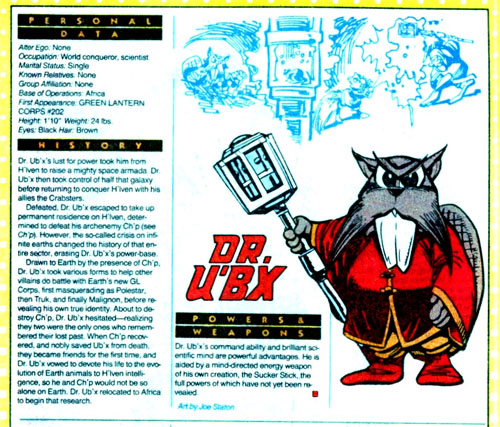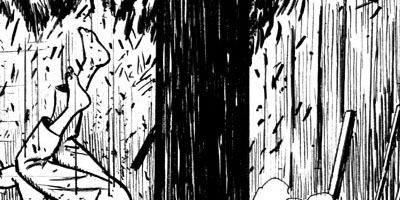He is an old man, sitting quietly in the corner of a room where many people speak in hushed and urgent tones about things of import that will affect everyone else. It’s easy enough for him to sit in on these meetings. Nobody really looks at him until he needs them to look at him: it’s a simple trick but it works every time.
He listens as they mutter under their breaths in frustration. They don’t understand where their ship has gone, they say. He is sure he might have dealt with this before, once, long ago. He remembers that much, but nowadays he can’t remember everything. That’s what his guide is for. He fingers it, a sliver of stone, a tiny obelisk hanging on a string; an idle observer would think he was only toying with his pendant, but a closer look would reveal the patterns he traces across his palm, sending his mind to a lone menhir standing in a field twenty miles south of Gdansk.
(He has had to move that stone three times now to avoid it being destroyed. Even the strongest dissuasions he can craft around it can’t affect a bulldozer.)
The menhir floods his mind with the thoughts he preserved in it, and he remembers.
***
The scholar stands up, hands on hips. He’s been through Paris five times this year and the city is always tense. The Huguenots and the Catholics are ready to explode, and now there are bodies in the Sicuana – the Seine, it is the Seine now, he has to remind himself of that as a stray thought from a menhir not properly sealed floats through the part of his brain which still rebels against this bastardized Latin they all speak these days. Each of the bodies is bloodless. The Catholics blame the Huguenots for the murders; the Huguenots accuse the Catholics of mutilating dead bodies to create strife. It will not end well.
Fortunee is watering the pinks again, he thinks, as he scratches at his moustache. The Queen of Eggshells demands that her pot of pinks be watered, and sends forth her devoted lady-in-waiting. They need blood to bring out the fine hue of the Queen’s pinks. The scholar has not dealt with the Queen and Fortunee in, what, three centuries at least? He had thought them sealed away, forever locked in a hart’s grave he had dug in the depth of winter (with a pick, since the ground was frozen).
Time to kill a new deer, then.
***
Not right, thinks the old man. These men are getting agitated now. They live in an age of reason: the fairies and grumkins are supposed to be long gone or never-were. They have some people who study the old horrors, of course, but the specialists are never called in soon enough and never have enough influence to convince their leaders and commanders of what must be done. The leaders and commanders always want to believe they can control the world; they never want to accept that the world is a puppet on strings, and protecting it means guarding against those with scissors.
Rome, perhaps? He seems to remember something about missing ships at some point in Rome. The obelisk dances across his hand, and a stelae on Mount Ossa shines in the sunset.
***
The warrior crouches on top of the roof of the vestibulum of the domus of Tullio, a powerful merchant who in all honesty would be enraged to find a barbarian crouching on his precious roof, but that is of no import at present. There are ships burning in the Ostia harbour, two Syrian biremes owned by the trading house of Ekon. The warrior contracted those ships, using any number of favours owed and offered to get them here: he knows from his studies that only good Asian mint would counteract the plague. He chews some of it even now, but he needs bales of it to put in the water; the Portuguese mint more readily available will not do, for this plague is caused by a wangye from the far eastern shores, and they only fear their own mint.
He sniffs: everything stinks of vinegar. The Romans know to how to disinfect with vinegar, and if this was a normal plague eventually that would be enough, but the wangye will not be deterred. Who set those ships afire? He must go down to the docks and investigate.
He reaches in his pocket for the ground iris root he brought with him. It will dye his hair – blonde long since turned to white, although still thick – a rich, dark, Mediterranean black, and stain his skin in the process to give him a swarthy hue. His Latin is good enough that he will pass unnoticed. He needs to hurry. The Emperor Trajan is a good man, and his enemies would be greatly harmful to many were they to enter power. He cannot allow dark bargains to conclude.
***
Burning ships. Not missing ships, burning ships. The old man would curse, were he still of an inclination to do so when frustrated. He’s never been so skillful at the stone memories as his master was: always he must grope through them, and it’s never, never the first one he finds that fits his problem.
One of these commanders is quietly fretting to another in a corner where they don’t realize they can be heard by an old man hidden from their minds. The press will find out soon, and then what? Panic? Riots? The other seems more worried about his professional career, and the old man snorts a little at that, but only a little – a hardhearted man can be of use.
The tip of his pendant traces the Mercury line of his left hand, floating back to thoughts he stored many years ago when he found some spare space in Stonehenge.
***
The druid sits at his writing-desk, scratching out runes with quill and blood. His own blood. Draining it off was not pleasant, but the unseelie greatly respect a letter written in blood, and if he is to be presented at the court of the Tylwyth Teg then he must first earn allies. Granted, he means to expose the unseelie to the wrath of the Teg, but they don’t know that yet.
The fairies have been stealing babies from their cribs again, violating the peace that the great British druid Carfax established in the last years of Constantine III, nearly two centuries ago. His master had introduced him to Carfax once, when he was still apprenticed, long before that last great feat turned Carfax into a legend. He remembered the Briton as having tremendously bad breath.
He looked at Carfax’s memories in the gowk stones left in Dyce, and saw that the abbylubbers could potentially be used as a wedge against their kinfolk if properly induced: their dislike of authority was near-universal. He wishes for a moment that his master’s thoughts were available to him, but that stone was gone, carved into cobbles by converted Vandals fifty years ago. Not for the first time, he thinks about how to protect the menhir network: so few druids are left, now, and their influence waning.
***
Could this be fairy work? The old man muses upon that, breathing as he does so in a specific pattern. The men in the room hear him breathe that way and fall into the pattern, following him even though they don’t know they’re following, and as he slows his pace down and breathes more deeply, they calm somewhat. For now, it will do.
Fairies could have done it, but an entire aircraft carrier? They were never so ambitious. No, he’s looking in the wrong direction, and losing time, and he knows he must open himself to all the stones or else he may run out of time to fix this, and if the soldiers and generals have their way they may declare a very poorly chosen war indeed, especially if those analysts they never listen to manage to make themselves heard. They are so agitated, these new Americans, and they have been for as long as he’s known them, which is quite a long time. He has never really been happy with this country, which replaced a strange land filled with brave souls and wild turkeys (and once a bear, spit-roasted). But that’s no reason to neglect his duties.
***
Charles Darwin sits inside his home, reading a bedtime story to his children, and does not know that an assassin lurks in his garden, hired by a sect of militant Presbyterian separatists who considered last year’s publication of The Origin of Species an insult against the Almighty. The assassin isn’t particularly clever; he doesn’t have to be. He just needs to shutter every door and window, and start fires in the right places – then wait outside with a club should any member of the family “jump desperately to their death.” He swats idly at a mosquito alighting upon the back of his neck, grunts, and gets down to work.
The assassin reaches into his bag for the skins of oil he brought with him, but suddenly realizes he cannot move. It was not a mosquito after all, but a small dart. As the assassin topples forward, off-balance, he rolls to stare upwards. A short, old man stands in front of him, with a small sword in his hand. The sword looks very old, and very sharp.
***
“I’m not getting any older.” It’s almost an accusation coming out of the warrior’s mouth. He’s had this speech planned for some time. He is eighty-five now, and most of the village remains spry and healthy well into their hundredth year – the gift of magical strength lingering in their blood. But he is not simply spry – he is robust. His hair is white, but other than that he could pass for forty-five years at most. He’s learned to gripe about his back if only to stop the conversations when he’s not there.
He opens his mouth for the next sentence, but the druid interrupts him. “You are not, and you will not for a very long time indeed. Do you know how old I am? I am very, very old – so old that I cannot remember how many years! And only now do I start to look it.”
He knows he must ask why, but before so much as a gasp of it can escape his lips the druid continues. “We do not choose this; I did not choose you. You and I were both chosen. So few gain the agelessness when they drink the potion. It is a calling.” The druid shakes his head, sadly. He does not seem happy that this calling has been given to the warrior.
And before the warrior can ask the obvious question, the druid interrupts him again with the answer. “You think ahead. You venture forth. Your friends are brave, but stupid, and content with things as they know them, content to be fishmongers and blacksmiths and bards. As much as you love simplicity, you are adept at complexity. And you understand duty. Were you not suitable…” The druid shakes his head, as if to say there is no point in considering the possibility.
“We are chosen.” It is said with sadness and resolve.
***
Niani’s financial district is on fire, and everywhere you look its citizens are rushing to put out the flames. Until an hour or so ago, when it rained a liquid that smelled somewhat of juniper, nothing would put those fires out, and many Mandinkans died screaming in the flames. Mansa Keita’s “magic” did nothing to stop it.
In the shadows of one of those fires a man in his twenties is on his knees, a fresh cut oozing blood down his cheek. He has been beaten but not humbled; his eyes glitter. The druid stands in front of him – at four foot seven inches, barely topping his kneeling captive. The druid knows his captive. He has not seen this man in twelve hundred years.
“We had the right of it, Gaul. They kept slaves, used slaves as fodder for their armies. Our cause was noble! They… we had the right.”
The druid does not look back at the ruined Atlantean flicker-ships. There isn’t any need. He ruined them. The Atlanteans had forgotten he can have the strength of a hundred men whenever he uncorks a bottle.
***
Flicker-ships. The old man blinks. That could be it. An Atlantean flicker-engine in working condition after all these years? Not impossible. All it would take is time and persistence, and there could easily be a few Atlanteans out there still, exploiting their youth, bending towards a long revenge. He shudders to think what an Atlantean-trained engineer could do if they got their hands on a nuclear reactor.
He stands up quickly, much faster than an old man should (although the pains in his back which he used to fake are now real – he’s aging, ever so slowly perhaps, but aging nonetheless), and in a moment realizes what’s wrong: one of the people present – a young woman, wearing Navy blues, looks to be a captain of some sort – has seen him. That hardly ever happens. Is he slipping? Did he fall so deep into the stones that he forgot himself for a second?
Did anybody else notice? No, just her. Perhaps if he leaves quickly, as if he belonged there all along, she will – no, that’s not working, she’s following him outside the room now. Oh, well.
He turns back to address her. “Hello, Captain. I really must be going.”
She looks at him suspiciously. “Where’s your clearance?” But it’s not mean. She carries her sense of duty with her: this man is not meant to be in the room, and so Steps Must Be Taken. He can appreciate that. He decides that, whatever else may happen, he likes this girl (who would no doubt be a bit offended if called “girl,” but he’s old enough that everyone is a boy or girl to him now).
“I must have dropped it in there.” He gestures back into the room.
She’s not buying it. “I think you should come with me.” In a second he will be in custody because one person in the room just had to be perceptive in a way that most people simply never will be.
And then his guide is in his hand, and for reasons that are not much more than hope, he’s clapping it into her hand, and squeezing…
***
The great bulk of the apprentice’s best friend weighs down the bed so greatly that at midpoint the frame bends to touch the floor. The bed is well-made, though, and bears the strain capably. They are old men now, or at least his friend is old. The apprentice was only born a very long time ago; there’s a difference.
They are both now one hundred and fifty-three years old, and even as recently as a couple of years ago his friend was able to move around on his own, amongst his grandchildren and great-grandchildren and even great-great-grandchildren. The magic he had swum in had given him even more life than most ever get from it; their childhood friends are all dead and gone, forty years or more, and his wife and even some of his children have since passed as well. Now it is the two of them, and his best friend’s family – who, with each generation, know him less and less well, no matter how everyone tries.
And so he sits, waiting for his best friend to die. He knows his friend is suffering greatly, but the strength of his life is now betraying him: he should be allowed to go on to his final reward, but magic courses within his veins and under his skin telling his body to simply survive, and so there is raspy breathing and great heaving lungfuls of air where anywhere else there would be merciful silence.
The apprentice has been searching for a way to end it. When he asked his master, they inevitably had a fight – the master, not unkindly, told him that this would be a lesson he would have to undergo. It was said with sadness, for his master loved the great fatass as much as the apprentice did. That didn’t matter, of course, and the apprentice demanded the answer and then stormed out in a fury and now he’s sitting in a chair shaking with anger and grief.
“I wish…”
He sits upright. “Yes? What do you want? Can I get you a pillow?”
Slow shaking of the head, the tiny bows on his dry, crackling braids still bobbling in place after all these years. “I wish… could have had…” Every word is a battle, but his friend was the greatest warrior he has ever known, and it doesn’t matter anyway because he knows what his friend wants to tell him. When the apprentice first realized that his friend was sad, he had thought it because his friend’s days of adventuring were over, but that was facile and self-flattering. The truth had always been far simpler, of course, simple like his friend’s great heart.
I wish you had a family like I did. I wish you were not so lonely.
One great arm feebly reaches out, barely able to support itself, and he clasps it, and now he knows, he knows what the end must be and why his master could not tell him. He wouldn’t have accepted it before now.
He takes his guide, carved from his friend’s quarry, and clasps it against his friend’s palm. “I did have a family. Our children played together. My third son married your second daughter. Remember the feast? You ate so many boar that day, your wife actually worried you would be sick… do you remember when my wife died? Every year, you would come with me and lay a helmet filled with wildflowers by her grave.”
As he talks, he pictures these things in his mind, creates them as vividly as he can, down to every detail, just as if he was putting them into a menhir to preserve them. His wife is a composite of the half-dozen women he loved in his life, each one of them eventually happily married to someone else, each of them now dead and gone. His children look like he would imagine his children to look: short, but favouring their mother otherwise. He imagines their homes standing by one another, extensions built upon extensions so the pair of them look like some crazed assortment of random walls with a roof, and you can’t tell where one ends and the other begins except for their front doors.
“Remember when my grandson Distrix opened his pub in Lutetia? We took our families on a roadtrip, but once we were in Lutetia we just kept going for two years, you and me and our children and grandchildren and all of us, through Lugdunum, Burdigala, then on to Helvetia – little Apellix fell in the fondue and we couldn’t stop laughing – and then down towards Rome…”
This is what the old druid couldn’t tell him: it was never anything so simple as a magic potion keeping his friend alive. It was loyalty and love. Through the stone, he puts these images into his friend’s mind, a history that never happened and never will; it’s an answer to the only question that could matter. What will you do when I’m gone? The truth is that he will endure as best he can, but that truth is what keeps his friend suffering. Better, then, to lie.
“…and the elephants raised their trunks to cheer in elephant-talk, and all India joined them, because now it was our grandsons who were the heroes, and we just sat back and watched and ate roasted goat and that yoghurt dip you liked before we left to return home the next day…”
Every image slides smoothly into his best friend’s memories, a life he knows as well as his own. It is what he imagined when he rode a raft across the Pacific with only dates to sustain him, when he rode elephants in Nubia, when he trapped a demon in a box in the furthest East. It is what he would have been if he had not been chosen by some nebulous force he doesn’t quite understand.
“…and Illuminix was elected chief of his village, and you were so proud. We feasted that day on wild boar, as we always did, and almond sweetcakes and honey-sweets for dessert. And salad. Your wife always made us eat salad. Part of being married, I suppose. Do you remember that?”
Please, let it work.
There is a moment of silence. When his friend breathes out his very last breath, it is a slow “yes,” and somehow there is joy in it, at the end.
Then the apprentice pats his friend’s head, and carefully closes his friend’s half-lidded eyes, and begins to sob.
***
The girl-Captain withdraws. She’s smart enough to realize what she has seen is true, and says nothing. Her stunned expression is enough for him to trust her.
The old man looks up at her (why must everyone be so tall?) and reaches into his pocket. “The carrier was stolen by a civilization long thought dead. It will reappear in six hours, with some luck; the crew will claim instrument failure and your satellites will be determined to have been mis-aligned. I recommend you allow them to believe it.” He hands her a calling-card with a name and number on it. “Tomorrow afternoon, call me. We will have milk. I don’t drink coffee. You shouldn’t either.”
She looks at the card, still trying to process the flood of memories he allowed her to see, two thousand years’ worth of a job he never wanted and doesn’t want for her – although he suspects neither of them will have a choice in the matter.
As he walks off, she calls after him once more. “Mr. Ricks?”
“Please,” he says, not turning back – for he has to get to the Indian Ocean in two hours’ time and that won’t be easy – “please, call me Asa.” And as he strolls out of the White House otherwise unnoticed, he pulls a small flask out of the breast pocket of his suit and unscrews the cap.






